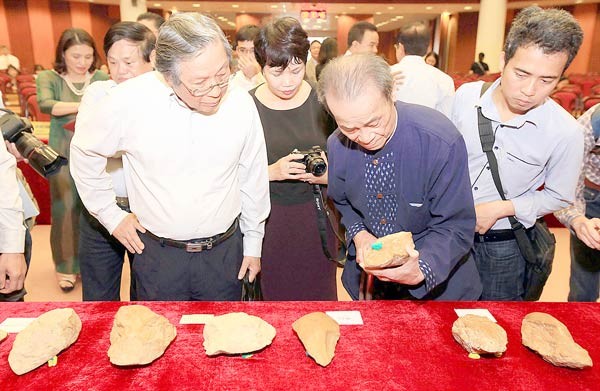Vietnam on the map of human evolution
Phuong Thuy -
(VOVworld) – Vietnamese and Russian archaeologists have found valuable artifacts in the Central Highlands province of Gia Lai that they say belonged to ancient humans around 800,000 years ago. The discovery has put Vietnam on the list of a few countries that witnessed human evolution.
The Vietnam Academy of Social Sciences announced on April 11 that archaeologists have found 58 stone tools and 21 meteorite pieces around the town of An Khe in Gia Lai province. Among the artifacts were two hand axes typical of the Paleolithic era. These findings prove that An Khe valley used to be inhabited by “Homo erectus” or “Upright man” - an ancestor of modern humans. These traces are the earliest evidence of the presence of humans in Vietnam and Southeast Asia.
Doctor Nguyen Gia Doi, Deputy Director of Vietnam's Institute of Archeology, said: “Human evolution occurred through different periods such as “Homo habilis” (Handy man) and “Homo erectus” (Upright man). Africa is where many human fossils have been found. The discovery of hand axes in Southeast Asia is amazing because such axes were thought to have been made in Europe. It contradicts the theory that hand axes were made in Europe only.”
 |
The findings in An Khe add a significant chapter to Vietnam’s history. A plan is being considered to turn An Khe into an international human evolution research center. Mr. Doi said measures will be carried out to preserve the An Khe relic site: “There are many traces of the Paleolithic era in An Khe so we want to continue cooperating with Russian archeologists on more excavations for 2-3 more years. We want to develop An Khe into a human evolution research center and it deserves to be recognized by the Ministry of Culture, Sports, and Tourism as a special national relic site.”
The Vietnam Academy of Social Sciences is organizing an international conference to publicize the findings to the world.
Phuong Thuy